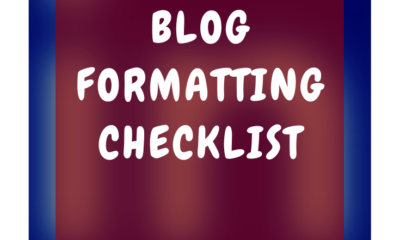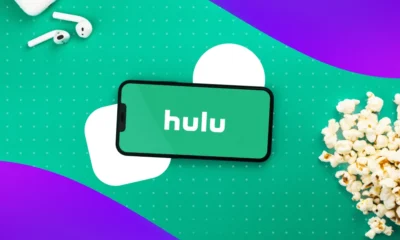Big Sites and Website Authority

Google’s John Mueller in an Office-hours hangout answered a question about whether a big a site with thousands of indexed pages influences Google’s perception of site quality. John Mueller answered no, it’s not a sign of quality and then provided more information.
SEO Perception of a Big Site Advantage
There is an old idea in the SEO community that big sites have an advantage over smaller sites.
When a smaller site can’t get top rankings some will shrug and write it off that the big site has an advantage because of how big they are.
An article published on Moz in 2012 offers an example of the belief that big brands have an advantage:
“There’s been a lot of debate about how Google, both manually and algorithmically, may favor big brands…
Since the beginning of the internet, the eventual advantage of big brands was only a matter of time.
This post is about why I think that advantage was inevitable, why it’s not going away, and what you can do to compete.”
It was a bleak outlook in 2012 and it is still a defeatist approach to marketing today, peddling the idea that ranking algorithms are rigged against smaller sites.
Despite new algorithms like BERT and MUM, many continue to believe that big sites have an inherent advantage.
Remove Low Performing Pages?
The person asking the question explained that they wanted to remove old pages that are poorly performing.
But they received pushback from the site developers who asserted that making the site smaller would reduce it’s perceived advantage from being a big site.
This is the question:
“So you’ve recommended several times in the past that large sites, that they focus on a smaller set of pages, I guess.
…The site I’m working on right now, we have a lot of pages that… a lot of pages… like a thousand pages, that don’t get any traffic, that are old, so I’ve been recommending to remove those.
But there’s a question that our dev team
has that they were under the impression that the more pages that Google has indexed of your site, the higher the authority it ascribes to the site…”
The person asking the question goes on to relate that the dev team is reluctant to remove pages because they’re afraid that it will impact the authority of the site.
He then asked John Mueller to “shed some light” on this idea of Google seeing a big site as more authoritative.
Google’s John Mueller Discussing Big Sites and Authority

Big Sites Are Not Inherently Better
John Mueller popped the bubble on the idea that big sites, by being big, have an advantage over smaller sites.
John Mueller’s answer about a link between authority and how big a site is unambiguous:
“So it’s definitely not the case that if you have more pages indexed that we think your website is better.
So I think that, at least, is absolutely not the case.
Sometimes it makes sense to have a lot of pages indexed.
Sometimes they’re kind of useful pages to have indexed like that.
But it’s not a sign of quality with regards to how many pages that are indexed.
And especially if you’re talking about something on the order of …1,000, 2,000, 5000 pages, that’s a pretty low number for our systems in general.
And it’s not that we would say, oh, 5,000 pages is better than 1,000 pages.
For us, it’s all kind of like, well, it’s a small website, and we make do with what we can pull out there.
And of course, like, small website is relative. It’s not like saying it’s an irrelevant website.
It might be small but it might still be very useful.
But it’s certainly not the case that just having more pages indexed is a sign of quality.”
Big is Not an Advantage
A lot of this doesn’t take much thinking to pop a hole in the idea that big sites have an advantage.
I and many of my ecommerce clients regularly outrank big brands retailers.
Some might say that brands are able to leverage their popularity to push their web pages higher. But if those sites have a over a million pages, how much “push” do they really have to leverage?
We are deep into the new era of natural language processing where AI, machine learning and algorithms like BERT, Neural Matching, RankBrain, MUM all work together to use website words and images themselves to rank websites, lessening the influence of less reliable signals like links.
So it makes sense that Mueller discourages the idea that having more pages indexed is an advantage in the current phase of search technology.
Citation
More Web Pages Indexed Means Higher Authority in Google?
Watch at the 3:45 Minute Mark
AI
Exploring the Evolution of Language Translation: A Comparative Analysis of AI Chatbots and Google Translate

According to an article on PCMag, while Google Translate makes translating sentences into over 100 languages easy, regular users acknowledge that there’s still room for improvement.
In theory, large language models (LLMs) such as ChatGPT are expected to bring about a new era in language translation. These models consume vast amounts of text-based training data and real-time feedback from users worldwide, enabling them to quickly learn to generate coherent, human-like sentences in a wide range of languages.
However, despite the anticipation that ChatGPT would revolutionize translation, previous experiences have shown that such expectations are often inaccurate, posing challenges for translation accuracy. To put these claims to the test, PCMag conducted a blind test, asking fluent speakers of eight non-English languages to evaluate the translation results from various AI services.
The test compared ChatGPT (both the free and paid versions) to Google Translate, as well as to other competing chatbots such as Microsoft Copilot and Google Gemini. The evaluation involved comparing the translation quality for two test paragraphs across different languages, including Polish, French, Korean, Spanish, Arabic, Tagalog, and Amharic.
In the first test conducted in June 2023, participants consistently favored AI chatbots over Google Translate. ChatGPT, Google Bard (now Gemini), and Microsoft Bing outperformed Google Translate, with ChatGPT receiving the highest praise. ChatGPT demonstrated superior performance in converting colloquialisms, while Google Translate often provided literal translations that lacked cultural nuance.
For instance, ChatGPT accurately translated colloquial expressions like “blow off steam,” whereas Google Translate produced more literal translations that failed to resonate across cultures. Participants appreciated ChatGPT’s ability to maintain consistent levels of formality and its consideration of gender options in translations.
The success of AI chatbots like ChatGPT can be attributed to reinforcement learning with human feedback (RLHF), which allows these models to learn from human preferences and produce culturally appropriate translations, particularly for non-native speakers. However, it’s essential to note that while AI chatbots outperformed Google Translate, they still had limitations and occasional inaccuracies.
In a subsequent test, PCMag evaluated different versions of ChatGPT, including the free and paid versions, as well as language-specific AI agents from OpenAI’s GPTStore. The paid version of ChatGPT, known as ChatGPT Plus, consistently delivered the best translations across various languages. However, Google Translate also showed improvement, performing surprisingly well compared to previous tests.
Overall, while ChatGPT Plus emerged as the preferred choice for translation, Google Translate demonstrated notable improvement, challenging the notion that AI chatbots are always superior to traditional translation tools.
Source: https://www.pcmag.com/articles/google-translate-vs-chatgpt-which-is-the-best-language-translator
Google Implements Stricter Guidelines for Mass Email Senders to Gmail Users

Beginning in April, Gmail senders bombarding users with unwanted mass emails will encounter a surge in message rejections unless they comply with the freshly minted Gmail email sender protocols, Google cautions.
Fresh Guidelines for Dispatching Mass Emails to Gmail Inboxes In an elucidative piece featured on Forbes, it was highlighted that novel regulations are being ushered in to shield Gmail users from the deluge of unsolicited mass emails. Initially, there were reports surfacing about certain marketers receiving error notifications pertaining to messages dispatched to Gmail accounts. Nonetheless, a Google representative clarified that these specific errors, denoted as 550-5.7.56, weren’t novel but rather stemmed from existing authentication prerequisites.
Moreover, Google has verified that commencing from April, they will initiate “the rejection of a portion of non-compliant email traffic, progressively escalating the rejection rate over time.” Google elaborates that, for instance, if 75% of the traffic adheres to the new email sender authentication criteria, then a portion of the remaining non-conforming 25% will face rejection. The exact proportion remains undisclosed. Google does assert that the implementation of the new regulations will be executed in a “step-by-step fashion.”
This cautious and methodical strategy seems to have already kicked off, with transient errors affecting a “fraction of their non-compliant email traffic” coming into play this month. Additionally, Google stipulates that bulk senders will be granted until June 1 to integrate “one-click unsubscribe” in all commercial or promotional correspondence.
Exclusively Personal Gmail Accounts Subject to Rejection These alterations exclusively affect bulk emails dispatched to personal Gmail accounts. Entities sending out mass emails, specifically those transmitting a minimum of 5,000 messages daily to Gmail accounts, will be mandated to authenticate outgoing emails and “refrain from dispatching unsolicited emails.” The 5,000 message threshold is tabulated based on emails transmitted from the same principal domain, irrespective of the employment of subdomains. Once the threshold is met, the domain is categorized as a permanent bulk sender.
These guidelines do not extend to communications directed at Google Workspace accounts, although all senders, including those utilizing Google Workspace, are required to adhere to the updated criteria.
Augmented Security and Enhanced Oversight for Gmail Users A Google spokesperson emphasized that these requisites are being rolled out to “fortify sender-side security and augment user control over inbox contents even further.” For the recipient, this translates to heightened trust in the authenticity of the email sender, thus mitigating the risk of falling prey to phishing attempts, a tactic frequently exploited by malevolent entities capitalizing on authentication vulnerabilities. “If anything,” the spokesperson concludes, “meeting these stipulations should facilitate senders in reaching their intended recipients more efficiently, with reduced risks of spoofing and hijacking by malicious actors.”
Google’s Next-Gen AI Chatbot, Gemini, Faces Delays: What to Expect When It Finally Launches

In an unexpected turn of events, Google has chosen to postpone the much-anticipated debut of its revolutionary generative AI model, Gemini. Initially poised to make waves this week, the unveiling has now been rescheduled for early next year, specifically in January.
Gemini is set to redefine the landscape of conversational AI, representing Google’s most potent endeavor in this domain to date. Positioned as a multimodal AI chatbot, Gemini boasts the capability to process diverse data types. This includes a unique proficiency in comprehending and generating text, images, and various content formats, even going so far as to create an entire website based on a combination of sketches and written descriptions.
Originally, Google had planned an elaborate series of launch events spanning California, New York, and Washington. Regrettably, these events have been canceled due to concerns about Gemini’s responsiveness to non-English prompts. According to anonymous sources cited by The Information, Google’s Chief Executive, Sundar Pichai, personally decided to postpone the launch, acknowledging the importance of global support as a key feature of Gemini’s capabilities.
Gemini is expected to surpass the renowned ChatGPT, powered by OpenAI’s GPT-4 model, and preliminary private tests have shown promising results. Fueled by significantly enhanced computing power, Gemini has outperformed GPT-4, particularly in FLOPS (Floating Point Operations Per Second), owing to its access to a multitude of high-end AI accelerators through the Google Cloud platform.
SemiAnalysis, a research firm affiliated with Substack Inc., expressed in an August blog post that Gemini appears poised to “blow OpenAI’s model out of the water.” The extensive compute power at Google’s disposal has evidently contributed to Gemini’s superior performance.
Google’s Vice President and Manager of Bard and Google Assistant, Sissie Hsiao, offered insights into Gemini’s capabilities, citing examples like generating novel images in response to specific requests, such as illustrating the steps to ice a three-layer cake.
While Google’s current generative AI offering, Bard, has showcased noteworthy accomplishments, it has struggled to achieve the same level of consumer awareness as ChatGPT. Gemini, with its unparalleled capabilities, is expected to be a game-changer, demonstrating impressive multimodal functionalities never seen before.
During the initial announcement at Google’s I/O developer conference in May, the company emphasized Gemini’s multimodal prowess and its developer-friendly nature. An application programming interface (API) is under development, allowing developers to seamlessly integrate Gemini into third-party applications.
As the world awaits the delayed unveiling of Gemini, the stakes are high, with Google aiming to revolutionize the AI landscape and solidify its position as a leader in generative artificial intelligence. The postponed launch only adds to the anticipation surrounding Gemini’s eventual debut in the coming year.
-

 MARKETING7 days ago
MARKETING7 days agoThe key to correcting the C-suite trust deficit
-

 MARKETING6 days ago
MARKETING6 days agoA Recap of Everything Marketers & Advertisers Need to Know
-

 PPC4 days ago
PPC4 days agoHow the TikTok Algorithm Works in 2024 (+9 Ways to Go Viral)
-

 MARKETING4 days ago
MARKETING4 days agoHow To Protect Your People and Brand
-

 SEARCHENGINES5 days ago
SEARCHENGINES5 days agoGoogle Started Enforcing The Site Reputation Abuse Policy
-

 SEO5 days ago
SEO5 days agoBlog Post Checklist: Check All Prior to Hitting “Publish”
-

 SEO3 days ago
SEO3 days agoHow to Use Keywords for SEO: The Complete Beginner’s Guide
-

 PPC5 days ago
PPC5 days agoHow to Craft Compelling Google Ads for eCommerce














You must be logged in to post a comment Login